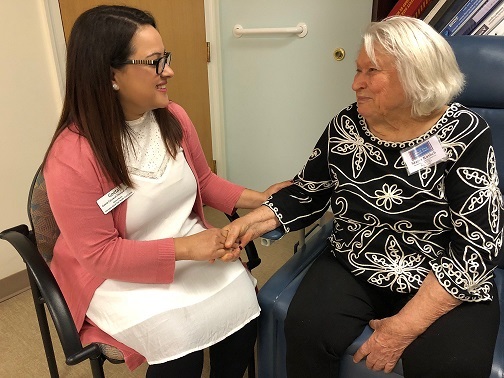- apearc's Blog
- Log in to post comments
Adult Day Health Care participants typically have more than one health issue. The reality is that most of will as we age.

Complex health issues can create an equally complex medication regimen — made even more cumbersome by constant changes.
But there is one simple thing the caregiver can do to keep it all on-track: Maintain an up-to-date list of medications.
A list of medications informs everyone involved in your loved one’s care about what is going on holistically. It informs a gerontology nurse like me what the neurologist has prescribed, along with the internist and the orthopedist, for example. It seems simple, but it really helps!
said Leah Freij, center nurse coordinator, Herndon Harbor Adult Day Health Care.
The medication list enables nurses like Leah to work with participant families and physicians on care coordination more smoothly.
When someone enrolls in our service, we get a list of their medications from the caregiver. Doing so enables us to help our families dialog with their physicians and coordinate care around medication use,
Leah said.
Many times, the care coordination leads to fewer prescriptions or successful identification of an underlying, "stealth" health issue.
We can also help unmask issues like depression, a stomach problem or another treatable issue.
Because we are with participants all day through the week, we have an abundance of daily health information to help us inform their care,
Leah said. We can see and track subtle changes. It’s this type of information that can help a family start a dialog with a physician around adjusting dosages. We can also help unmask issues like depression, a stomach problem or another treatable issue.
Reality check: most caregivers are not trained medical professionals. Resources like Adult Day Health Care’s nursing staff provide "translation"’ between caregiver and physician, making both you and your loved one healthier in the end.
Leah’s other tip for medication management is to keep the medicine cabinet accurate and get rid of unused or outdated medications. Health Department Director of Epidemiology and Population Health Dr. Ben Schwartz recently highlighted the importance of cleaning out the medicine cabinet.
Learn more about medication management in this video.

